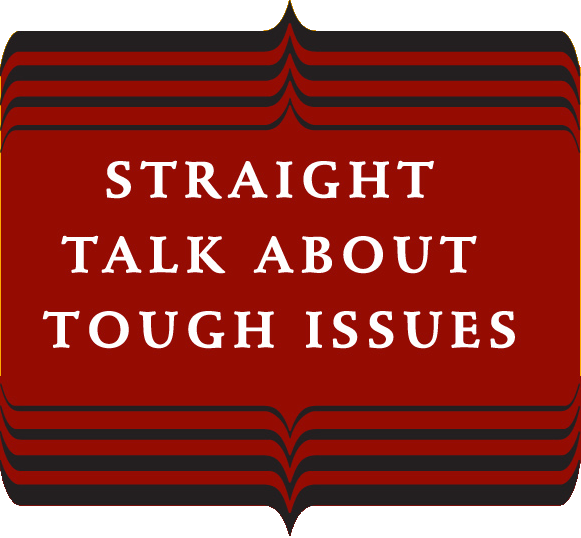The closest I came to getting raped at work was when I had a job detasseling corn in Indiana as a teenager. Don’t laugh—in the olden days, farmers employed young people to walk through muddy corn fields, pulling out the yellow flowers that grow at the top of a corn plant and throwing them on the ground. It was sticky, sweaty, dirty work, and tempers and libidos ran hot. Corporate America can pose some harassment risks, but it shouldn’t be that bad.
Sexual harassment on the job is defined as any unwelcome sexually oriented behavior, demand, comment, or physical contact initiated by an individual at the workplace that is a term or condition of employment, a basis for employment decisions, or that interferes with the employee’s work or creates a hostile or offensive working environment.
This is a legal definition, including lots of fine points that can argued about and analyzed and clarified in court. For you, girlfriend, I would say this: If you feel as though you’re being harassed at work, don’t put up with it, don’t hope it will just go away, and take action to make it stop. If you’re having this kind of trouble, my heart goes out to you. It can ruin your work life. But women too often simply put up with it, and guess what—it goes on and on.
Not every physical contact is harassment, although some men pretend that’s what fuddy-duddy lawyers have tried to impose on them. Those guys are impostors—they know what’s okay and what’s not. They just don’t want any rules placed on their behavior. On the contrary, nice guys will sometimes touch you, and if they’re nice, you won’t mind. If someone puts his arm around you to show you he’s proud of you, hugs you when you’re leaving for a long trip, pats you on the back when you’ve done a good job, high-fives you after a good presentation, those gestures aren’t sexual and are meant to communicate, not harass. My male colleagues who weren’t especially articulate would sometimes communicate in those ways—it was hard for them to put their emotions into words, so they expressed themselves more physically. I was never uncomfortable with their touching me. For me, it was always crystal clear whether I was dealing with a Good Guy, a rat, or someone who had gotten confused (usually by drinking). Spend some time thinking about what is and is not acceptable to you. Then you can react fast when some guy touches you.
Here’s my rule of thumb: If there’s physical contact that makes you uncomfortable, it’s harassment, and you should tell him to cut it out. And right now. If someone’s touching you in an inappropriate way at work, tell him to stop it, clearly and loudly, and in someone else’s presence. Jerk away from him; don’t let his hands stay on you. Knock his hand off if you have to. This has always worked for me, but if that doesn’t stop it, don’t give up. Keep telling him to stop it, and raise the pressure by going to someone else in the company. You’re the best judge of whom to appeal to first, but your options include: human resources, your manager, his manager, or anyone else who will take you seriously and recognize that you need protection.
I heard an amazing story from a young woman who was being harassed by her boss. She said he would “put his hands all over me when we slow-danced.” Huh? Why on earth are you dancing with him, honey? Say NO. Stand up for yourself! Don’t just suffer.
If there’s no physical contact, and the harassment is all verbal, recognize that this will be harder for you to explain and for others to understand. You still shouldn’t put up with it, but be aware it will be harder to prove and to prohibit. These situations can be complicated, so it’s hard to give good advice here, but I would say if you feel constantly uncomfortable and can identify certain behaviors that you wish would stop, that your harasser engages in regularly, you should tell the offender specifically what he must stop doing. He may just stop, or he may get antagonistic and more focused in his harassment. Although that will be harder in the short term, it’s better to have more specific discussion points to object to and ask for help in stopping.
My experience with men crossing over into inappropriate territory was usually one-off situations with guys who were vaguely hostile at work but then got a few drinks in them. Read the “After Hours” section for general advice about how to protect yourself. I wasn’t above using other men in the group to shield me from the harasser, even putting them physically between me and him. Good Guys are often pretty aware of what’s going on under the surface and will move in to shut off the harasser once they’re sure you have no interest.
These situations are delicate and subtle, but the biggest mistake you can make when you suspect you’re being harassed is not doing anything about it. Be cognizant that the person who will be most effective in getting it to stop is you. You can’t just make a complaint about someone behind his back and expect the harassment to magically end. You have to be involved, and you have to provide very specific information. Especially, don’t let it get started, put up with it, and then try to stop it. You need to be aggressive right away. It’s much harder to stop once it’s gotten a foothold. I do hope you never find yourself caught up in this ugliness. Please watch out for yourself, sister.
© 2012 Jennifer K. Crittenden





 Ten 90-minute individualized sessions. Private and confidential.
Ten 90-minute individualized sessions. Private and confidential.

